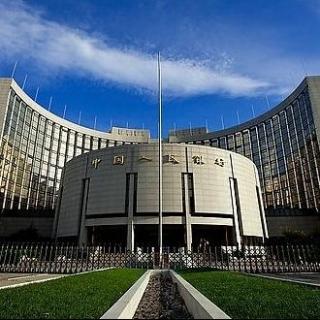
介绍:
China's central bank pumps more money into market
The central bank on Thursday pumped more money into the market to ease liquidity strain.
The People's Bank of China conducted 150 billion yuan, or over 23 billion U.S. dollars of seven-day reverse repurchase agreements (repo).
Reverse repo is a process in which central banks purchase securities from banks with an agreement to resell them in the future.
The reverse repo is priced to yield 2.35 percent, down from the 2.5-percent yield on Tuesday's reverse repo.
China to launch state-owned investment operating companies
The State-owned Assets Supervision and Administration Commission of the State Council (SASAC) is compiling specific measures to found and run state-owned investment operating companies.
Li Jin, chief researcher at China Enterprise Research Institute, has revealed that the Commission would choose a batch of qualified centrally-administered state-owned enterprises to restructure into state-owned investment operating companies. They are expected to carry out equity operation in their industries.
More than ten provincial and municipal governments like Guangdong, Shanghai and Chongqing have announced plans to promote the formation of state-owned investment operating companies this year. Companies in Liaoning, Yunnan, Shanghai, Guangdong and Anhui have launched equity operations.
China August inflation forecast at 1.9 pct
An industry report says China's Consumer Price Index is likely to grow 1.9 percent in August from a year earlier.
This is up slightly from the 1.6 percent recorded last month.
The report from the Bank of Communications projects annual CPI growth will be well below the 3-percent target.
The report attributes the expected CPI growth to rising food prices, which account for around one-third of the weighting in CPI calculations.
Pork, vegetable, and egg prices are singled out as drivers of CPI growth.
The official CPI for August is due to be released by the National Bureau of Statistics on Sept. 10.
China Encourages Financil Leasing
Anchor:
China's State Council has mapped out measures to accelerate the development of financial leasing and make it better serve the real economy.
CRI's Liu Kun brings more details.
Reporter:
A statement by the State Council on Wednesday believes stronger leasing services can provide capital to support investment on equipment and industrial upgrades.
The statement demands less red tape, including no minimum capital threshold for leasing companies to establish subsidiaries and easier procedures for leasing equipment like ships and farming machinery.
The statement also says development of leasing businesses involving high-end equipment imports and clean energy should be sped up.
It also encourages the establishment of leasing businesses for small enterprises and agricultural development.
Zhao Qianrong, manager of an agricultural machinery enterprise in east China's Anhui Province, says the encouragement of leasing is good news for manufacturing enterprises.
"This policy is helpful in expanding rural market and strengthening farmers' purchase power. With rural land circulation and intensive land management going on, large scale agricultural machinery is expected to have a promising future."
The statement by the State Council also calls for making good use of the Internet, establishing markets for trading of leases and second-hand equipment, and developing leaseback business.
Meanwhile, local governments are required to provide incentives and risk compensation to guide leasing businesses to better serve the real economy.
Wong Jianxing with Fuyin Financing Company believes leasing has great development potential in China.
"Many enterprises benefit from leasing, which plays an important role in solving problems like capital shortage and facility purchasing. In developed countries, the leasing penetration rate has reached 20%. However, our latest figure just stands at 4%. "
Stats show China had over 2000 financial leasing companies as of the end of last year, increasing nearly 1000 compared to the previous year.
For CRI, this is Liu Kun.
China's Wanda Completes $650 Million World Triathlon Buy
China's Dalian Wanda Group has confirmed it will acquire sports rights group World Triathlon Corporation.
The purchase price stands at 650 million US dollars.
The Ironman endurance race combines extreme cycling, swimming and running events.
The management team of WTC has opted to stay with the company and signed a long-term contract with Wanda after the acquisition.
Sources say the Florida-based WTC earns revenues from entry fees, sponsorships and TV rights.
Wanda said WTC's gross revenue has risen at a compound average of 40% for four consecutive years, while net profit has grown at 40% a year.
Qihoo 360 launches self-developed mobile phones
Qihoo 360 Technology Company has released three new mobile phones in Beijing.
The new products are under 360's Qiku brand.
They feature not only the anti-virus, anti-trojan and anti-fraud functions, but also a hardware-based anti-theft function that protect users' information even if the phones are stolen.
The company has also unveiled a new operating system, called 360 OS, which gives users the freedom to uninstall and remove original Apps from the system.
BYD: net profit up 30pct y-o-y in H1
China's leading new energy vehicle and battery maker BYD has recorded a 29 percent rise in net profit, year on year, in the first half.
It earned 467 million yuan, or 73 million US dollars.
Revenue in the first half increased 18 percent over last year.
Sales of new energy vehicles alone accounted for 19 percent of the company's total in the first six months.
The automaker predicts its net profit would grow by about 4-fold year on year in the first three quarters of this year.
FAW-Volkswagen dominates new car registrations in China in July
FAW-Volkswagen dominated sales in the Chinese market in July.
Registered new cars of this brand hit 132,000 units last month, good for a market share of 9.5 percent.
A company source says FAW-Volkswagen's July performance outperformed Shanghai Volkswagen and Shanghai General Motors.
FAW- Volkswagen is a joint venture formed in 1991 by Chinese automaker FAW Group and Germany's Volkswagen Group.
大家还在听

